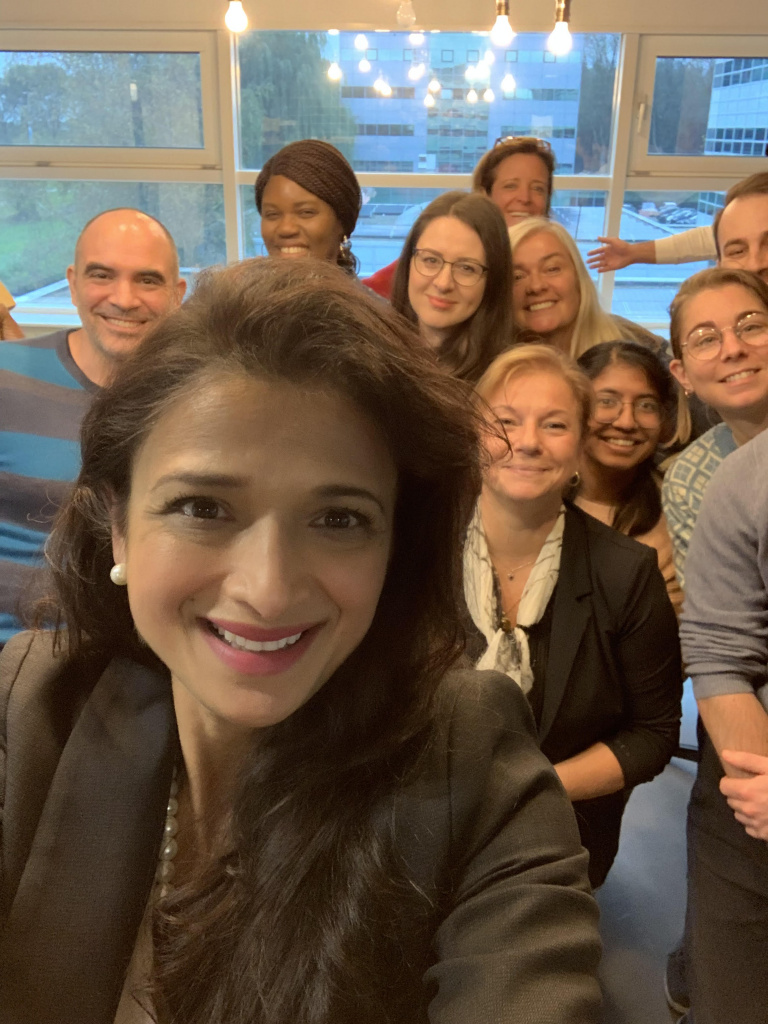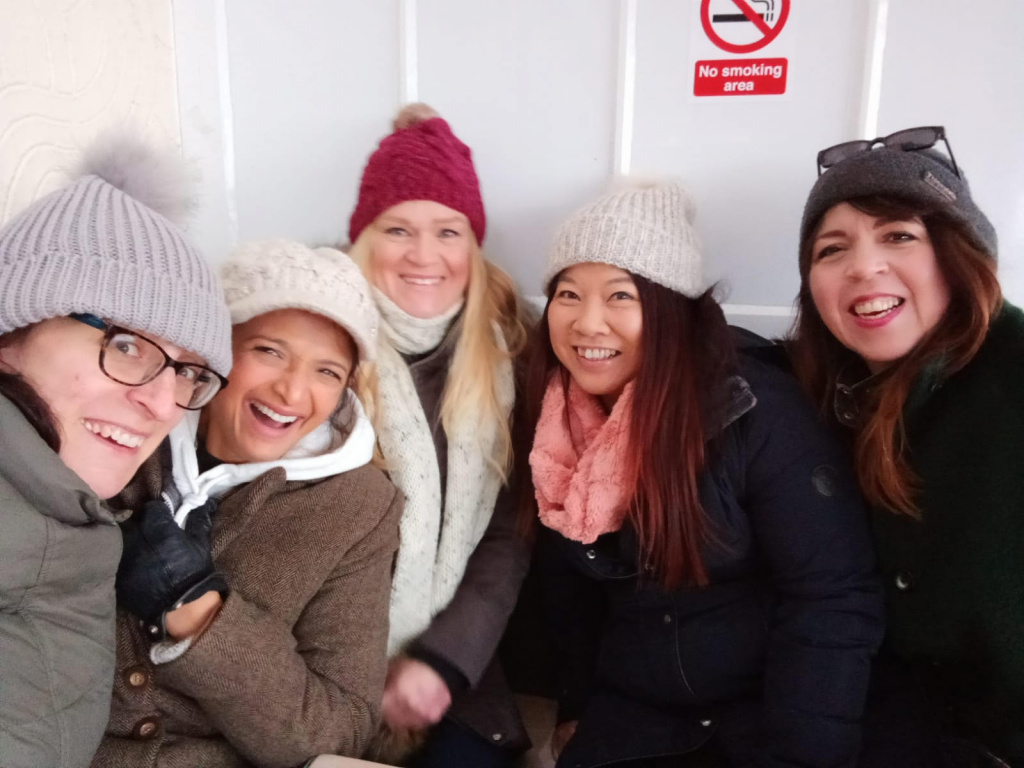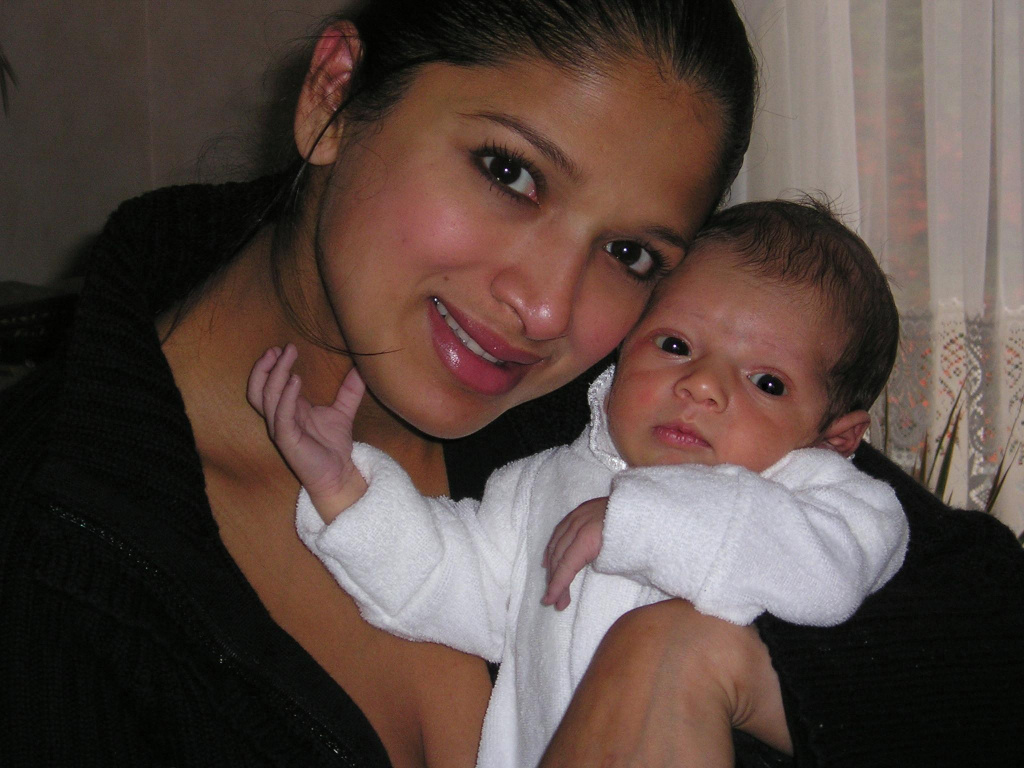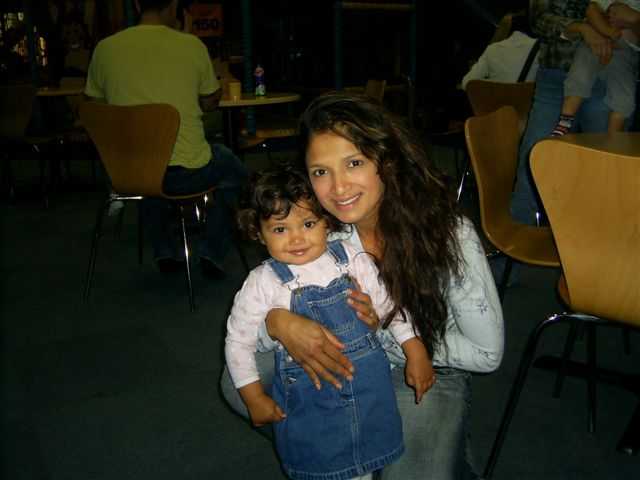How did you get there? Parves Khan

Great to hear from Parves Khan.
So, how did you get into the industry, and take us through how you got to this point?
Where I am today is rooted deeply in my childhood – that’s where a trajectory kickstarted that was rocket fuelled by steely determination. And as a kid that got me into a lot of trouble!
I was insatiably curious: I was fascinated by how the world and everything in it worked. At the age of 8 or maybe 9 that curiosity led me to wonder what would happen if I chopped up a worm – would the bits wriggle back together? Imagine the disgust on my mother’s face when she found a box of mostly dead and some still wriggling worms in my bedroom!
I was a risk taker (or foolish depending on one’s perspective) but I learned from my mistakes fast! One summer, I was probably 11, I spent the summer building a go-kart – I dragged it to the highest road in my neighborhood and rode it down. The only thing I forgot to work out was the braking system! I left that out! To cut a long story short, I crashed into an oncoming car and am lucky to be alive (my poor parents)! I never made that mistake again!
I hated injustice: I was always trying to stand up for what was right and that meant challenging the prevailing social norms and customs of my traditional patriarchal upbringing – I hated seeing the women always in the kitchen, always in the shadows of the men in the family. No way that was going to happen to me! That indignation meant I was also always scrapping with the local school bullies and yes, I often came home with a bust lip and a black eye!
I was poor!: My parents were immigrants from Bangladesh and whilst they did what they could to provide for their children, we managed with very little money and lived in one of the most deprived areas of Bristol in the 1970s and 1980s. I didn’t have chemistry sets or even books at home (nor did most of the kids in the neighbourhood). Career expectations for us kids were low. In those days, you had a career advisor at school who would help get you jobs (before state school budgets got totally decimated!). At maybe 14/15 she came to see me about getting me set up for a job at Littlewoods, a local department store when I finished school at 16. I told her she needn’t go to any trouble as I was going to be a lawyer and off to college and then to university. She told me to stop being foolish! The reality was kids from my neighborhood didn’t go to university. Most of the girls were mums by the time they were 18/19 and indeed that was the fate of my own sister – but not me, I had very different ideas about what I wanted.
So that steely determination, my street smarts, and a bit of luck meant I did end up at university and yes, I did study law (by the way, I worked part-time throughout my undergrad years to supplement my grant).
After a semester of constitutional law, I nearly lost the will to live and realized maybe law wasn’t that exciting after all! By then that curiosity about how the world worked turned to curiosity about people – what makes us tick? What influences our behaviour? How much do culture, politics, and technology shape our lives and how we live? By the age of 20, those research skills were already coming out loud and clear. I simply loved doing the research, analysing all the data, figuring things out, and coming up with answers. All those attributes I had as a child could be put to good use!
So, whilst many ‘fall into’ the insights industry, I purposefully sought it out. I went on to complete a PhD in political decision-making, got my first job as a research fellow at a university in 1994, then 6 years later, moved into client-side market research roles. I’ve been fortunate to have led the global insight function for a couple of Fortune 500 companies as well as experiencing the not-for-profit sector when I headed up insights at the tourist board. I’m glad I also set up my own research consultancy and did that for 6 years – it’s not possible to appreciate the pressures on the agency side until you’ve experienced it yourself!
Across my career, battling stereotypes and sometimes outright discrimination based on my gender, my ethnicity, and my poor working-class roots, has also been an ongoing story and I carry a strong responsibility to help others. Representation matters and I’m part of several networks like Women in Tech, a chapter of Global Tech Advocates to address the appalling underrepresentation of women in tech roles.

Career paths are rarely without challenges. Can you share an honest moment from your career when things didn’t go quite according to plan, but the lessons remain with you to this day?
This is an experience that I am sure many others share. For young ambitious people, the path to promotion is to become a ‘manager’ and that often means managing one or more people, sometimes lots and lots of people! So, suddenly you’re not just responsible for your own work, but that of others. The trouble with many companies is that they don’t train you in how to be a people manager – it’s entirely a different set of skills to being a project manager.
At 30 I joined a company and become the manager of a team of 7 people whom all knew each other well, most had been doing the job for years and they adored their previous research manager. So, there was already this wall between us. Within months I realized I was an excellent project manager but a rubbish people manager. I was overwhelmed with the new challenges of managing humans! As I’m very results driven and back then didn’t think twice about staying on at work until 9pm to get a project completed, and I expected the same of my team! As you can imagine that didn’t go down too well, especially for those who were parents. There was mutiny! So, I realized I needed help, Finally, I got some training from work and would often do extra training I paid for myself to sharpen my people’s skills.
So, I would encourage all employers out there – please don’t expect someone with fantastic technical skills to also have equally fantastic people skills – they need to be developed just like those technical skills, so I urge you to provide training and coaching to help them become successful. For those starting their management journey – ask, no, actually, demand, some coaching at the very least.

What two things should junior researchers focus on as they progress in their careers?
From my experience, professional networking is No 1. For many people, that’s outside their comfort zone. They either find the whole experience intimidating or quite shallow. I say, change your mindset! This is how you create the visibility you need to advance your career. People go to networking events to connect, so they expect to be approached by a stranger, they know they need to do the same themselves, so don’t feel shy about going direct to someone and saying “Hi, I’m …” I bet they will be so appreciative of you making the effort. So, find opportunities to network – it’s been essential for building my career. There are tons of events and conferences out there to attend.
The second priority is to continue to learn and earn credentials throughout your career. Don’t think “I’m finally done with my education and that’s it” once you leave uni. No, the insight landscape is continually evolving, and new capabilities are coming to fruition. For me to have progressed, I needed to learn about marketing science, data science, UX research, and Artificial Intelligence – so I did and enrolled on courses to learn. There are lots of short bite-sized online courses where you bag a digital credential too which makes it that more worthwhile.

How do we ensure that students and those leaving school aspire to join our sector?
I see it as a two-pronged approach. One is outreach – going into schools and colleges and talking about the rich diversity of professional roles available in our dynamic profession. There are ethnographers, UX researchers, social scientists, data scientists, business intelligence analytics, marketing analysts, survey designers, and then what you might still describe as ‘all-round market researchers’ like me. We can get young people excited about these roles by sharing our stories and showing them real life examples. At ESOMAR we do these career events, where we work with our university partners to put on events where insight professionals from the client and agency side speak to the students about their career journey. They are hugely fun and motivating events.
The second approach takes a longer view. Many professions like being a doctor, a teacher, a vet, an accountant, an engineer, an architect, have a very clear career pathway. Most of the time it involves going to uni and doing a degree in that subject area and then becoming certified or chartered and thus recognized as a qualified professional in that field. It’s not like that in market research. I don’t think we need to go down the route of having a degree in market research as what is so great about our profession is that barriers to entry are low for many job roles, e.g., you can do any degree and indeed I would say for some roles you don’t need a degree as you get training on the job. At Pearson, I didn’t demand a degree for the researchers I hired. I found an amazing junior survey scripter who didn’t have a degree but had the tech skills needed for working with several DIY survey platforms.
So, I think us industry leaders need to come together and work with employers and educational establishments to carve out clearer career pathways for young people into market research. Maybe that will mean some sort of chartered status which is gained through a mix of formal education and learning on the job in the end, but we’ve yet to figure it out.

And do you have anyone who has helped your career so far that you’d like to acknowledge and say thanks or give a shout out to?
There have been many people throughout my life who have inspired me, who have encouraged me and who have had my back. I do want to acknowledge my amazing tightknit friendship group of women I’ve known for more than 2 decades – we’ve been there for each other as we turned into first-time mums, juggling a career with being up all night with a colicky baby, to the loss of seeing our kids grow up and leave for uni, and transitioning into the empty nester space(finally a tidy house but just not the same without the kids). Having that support network has been so important for working parents like me. I also want to acknowledge the rock in my life which is my hubby Gareth. Without his support and him taking an equal share of the chores and childcare – it would have been impossible for me to advance in my career.